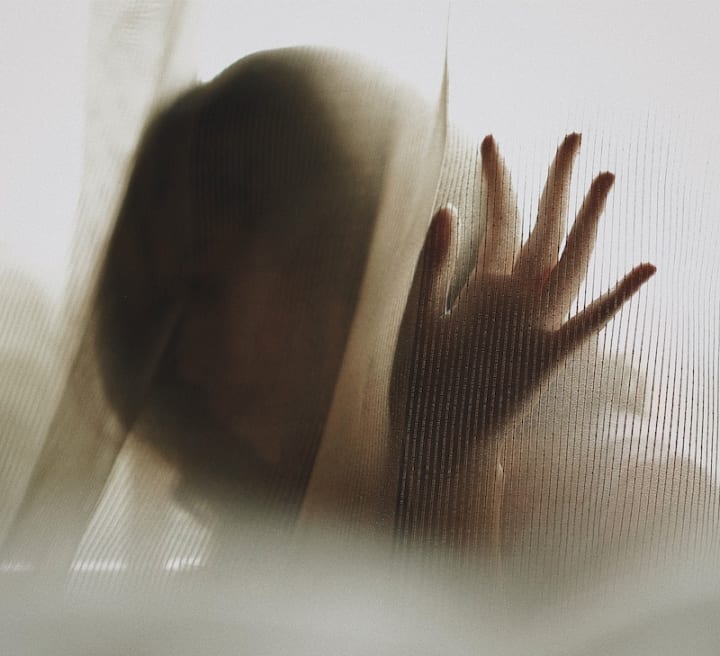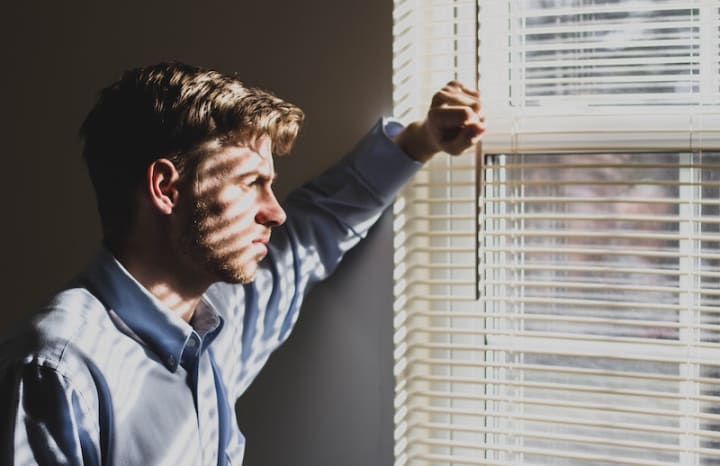Things to Understand About Someone Who Hides Their Depression
More people hide their depression than you know. That's why it is imperative that you learn how to observe and talk to those closest to you.

Going through your teen years is hard enough, but when you're trying to deal with your own depression, anxiety, or other mental illness on top of that, life can be a total nightmare. That, in one sentence, is the story of my youth. From the young age of eight years old, I was in and out of more therapist offices than I can count. When I was 14, my depression and bipolar disorder reached its full strength. Every morning I woke up wondering if I should leave this world, and every night I went to sleep knowing that I had hung in there for one more day.
These thoughts are heavy; these feelings are heavier still. If we can barely handle them ourselves, we don't expect anyone else to be able to. That is why many people who suffer from depression keep it close to their chest, as if it were a terrible secret no one should ever know.
But you need to know.
We're afraid you won't take us seriously.
The primary reason people hide their depression, no matter how severe it is, is that we're afraid of how you'll react. There are several possible outcomes that keep us from telling you the truth: one is that you won't take us seriously.
I can't tell you how many times people told me that I was being overly dramatic or seeking attention by talking about my depression. Countless times it was waved off, even by those I considered my closest friends, because they didn't think it was a serious, or even real condition.
When someone invalidates you like that, you end up feeling even more hopeless and alone than before. It is its own kind of betrayal; we trusted you with our deepest selves, and you threw it aside. Even if someone hasn't experienced this, they will hide their depression out of fear of it.
We're afraid you'll put us down.

Clinical depression is not a choice. It is also no one's fault. But a lot of people don't think that way. They confuse depression with sadness and come to the conclusion that those who are depressed for long periods of time just don't want to get over it.
"Get over it" is one of the worst phrases you can say to someone with depression. When you tell us that, you're telling us that we're not trying hard enough and that we have total control over how we feel. It makes us feel defective—like we're doing something wrong. We don't want to hear those words, so we hide the true extent of our feelings.
We don't want to burden you.
Depression is a huge burden. People who suffer from it really do suffer every minute of every day. It consumes our thoughts and darkens the world around us. The thought of putting that all on someone we care about, someone who is happy, is enough to make us want to keep our depression to ourselves.
No one wants to feel like a burden, and we're afraid that if we tell you the truth, you'll start to consider us one.
We're afraid of losing you.

We're afraid that if we tell you about our depression, if we burden you with it, you'll end up leaving sooner or later. The truth is, not many people can handle the weight of another person's depression. It becomes too much for them, and the relationship—whatever kind—more often than not ends in a hurtful way.
I've had many friendships and relationships fail because my mental illness made the other person feel overwhelmed, angry, or frustrated. What I wanted to say to all of them once they'd left, and what I never got the chance to say, was if you feel that way about being around my depression, how awful do you think I feel as the one who actually has it? It felt like the height of insensitivity, but the reality is not everyone is capable or equipped to handle it.
We hide our depression because we're afraid that we'll lose you if we tell you—just like we lost the others.
We don't have enough self-worth.
Depression constantly eats away at a person's sense of self-worth. "I don't deserve to feel happy" and "I'm not good enough" are two thoughts that we begin to drill into our own brain. They become mantras, reinforcing the idea that somehow we deserve to be depressed and that we're not worthy of happiness.
If someone doesn't have self-worth, they won't take it upon themselves to seek help. The thought process becomes, "Why bother?" So instead, it gets tucked away in the dark, where it festers.
We're scared to get help.

Taking the decisive step to get professional help is a monumental challenge. People without depression tend to think that it's the obvious solution, and if we don't do it early on, we're being lazy or we want to be depressed. But other than the reasons I've already mentioned, there is another that keeps us from getting help.
People don't like to leave their comfort zone. Even if they're in the worst romantic relationship, for example, it could take them forever to leave because they're scared of parting with what they know. Even if the feelings that relationship gives them are uncomfortable, they find comfort in the familiarity aspect of it. The same goes for people with depression.
If you've been depressed for a long time, the idea of leaving what you know can be scary—even if you know logically that by doing so you could get better.
Nobody wants to be around someone who is constantly depressed.
People want to be happy; no one wants to be depressed. People who are depressed know that and also know that others will most likely find their depression off-putting. People might put up with you for a while, but they'll start to distance themselves eventually.
People often hide their depression from their friends just so they can keep them. But then the question becomes, are they really your friends if they would ditch you in your time of need? Often, we don't want to know the answer to that question.
We already feel isolated.

Depression is an isolating condition. Isolating oneself is an actual symptom of depression, but isolation is also a state of mind. When we feel like no one could possibly understand or sympathize with us, we feel emotionally isolated and alone. Because of that, people with depression often make themselves physically isolated. So the thought of telling someone about our depression can feel like it's not even an option. We're already isolated, so we don't want to run the risk of isolating ourselves even more.
We want you to figure it out on your own.
Call it emo, but Taking Back Sunday's lyrics from the song "Ghost Man on Third" describe why people hide depression to a tee: "It's a shame I don't think that you'll notice/ It's a shame I don't think you should care/ No one has to know about this."
A depressed person's thought process is: if you really cared about me, you would be able to tell I'm depressed. If the people we love the most don't notice or acknowledge the signs of our depression, then we often jump to the conclusion that they don't care enough notice. We feel like we shouldn't have to tell you we're depressed—you should already know. And if you don't mention it, then we think it's not worth mentioning.
We think there's no getting better.

Depression incurs feelings of hopelessness. That's not just an opinion, but a medically recognized symptom of the disorder. If a person is severely depressed, it's likely that they think there is no way of ever getting better. If that's the case, then what's the point in talking about it?
This is one of the biggest issues concerning mental health. People always need to be reminded that no matter how bad it gets, they can get better. There is always hope, even if your depression is telling you there isn't. Therapy can help you learn how to better cope with and manage your depression, accurately prescribed medication can help reduce the symptoms of your depression, and a reliable support system (i.e. friends and family) can keep you motivated and strong when you feel weak.
Having a support system, no matter how small, is extremely important to people with depression. In the end, what we really want you to understand most of all about depression is that we want you to understand depression. We want you to learn about it. We want you to learn how to relate. We want you to understand what it means to be depressed, even if you've never experienced it yourself. It is because we think that no one can possibly understand us that we hide it.
This is why you need to be able to understand a depressed person's point of view. They won't always come out and say what's wrong, so you need to be proactive about recognizing the signs and knowing how to handle the topic in a sensitive, caring way.
You have no idea how much it matters.
About the Creator
Glen Ryan
Someone who struggled with depression and addiction as a youth, Glen Ryan is now a life coach who spends his time helping and healing others.







Comments
There are no comments for this story
Be the first to respond and start the conversation.